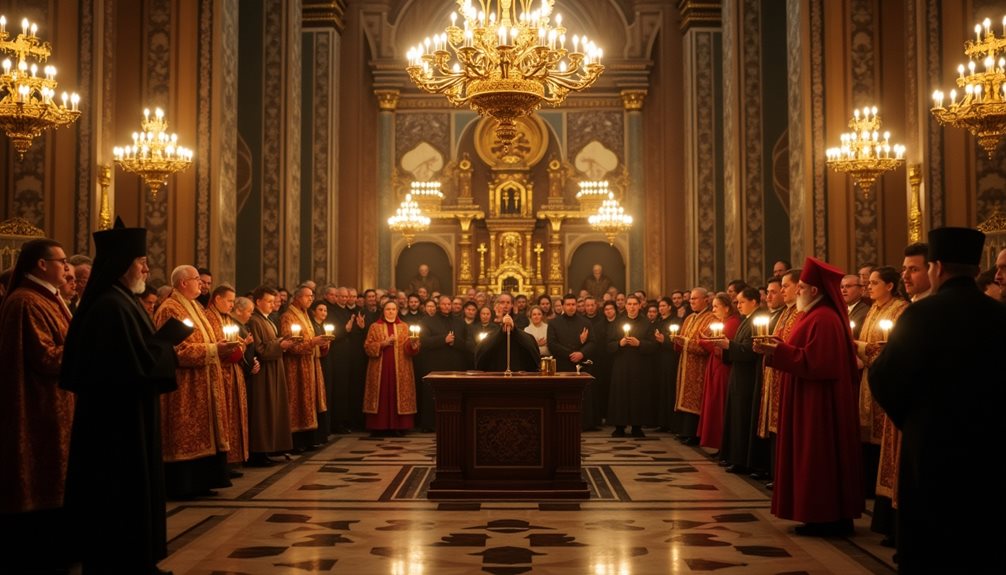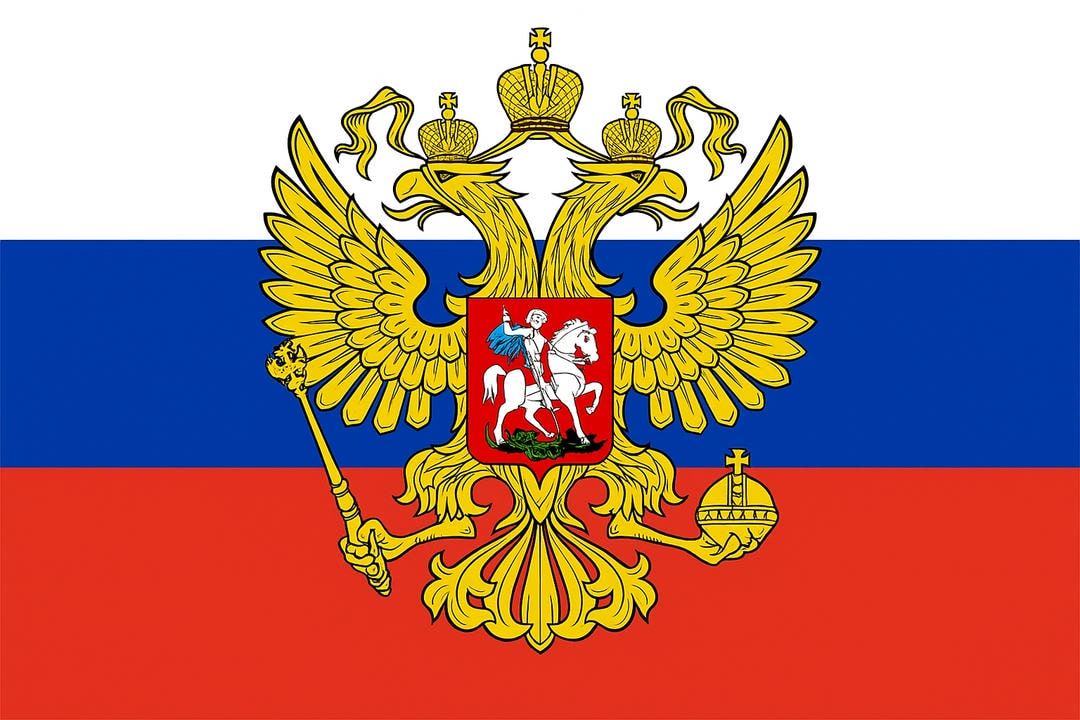Understanding the cultural intricacies of Russia is essential for any visitor aiming to make a positive impression. Proper greetings, such as firm handshakes and maintaining eye contact, are fundamental. Equally important is the practice of bringing a small gift when invited to someone’s home, which showcases your appreciation. However, adherence to these customs extends beyond initial interactions. Knowing what topics to avoid in conversation and how to dress appropriately in formal settings greatly influences your experience. What are the key nuances that can make or break your visit to Russia?
Greetings and Introductions
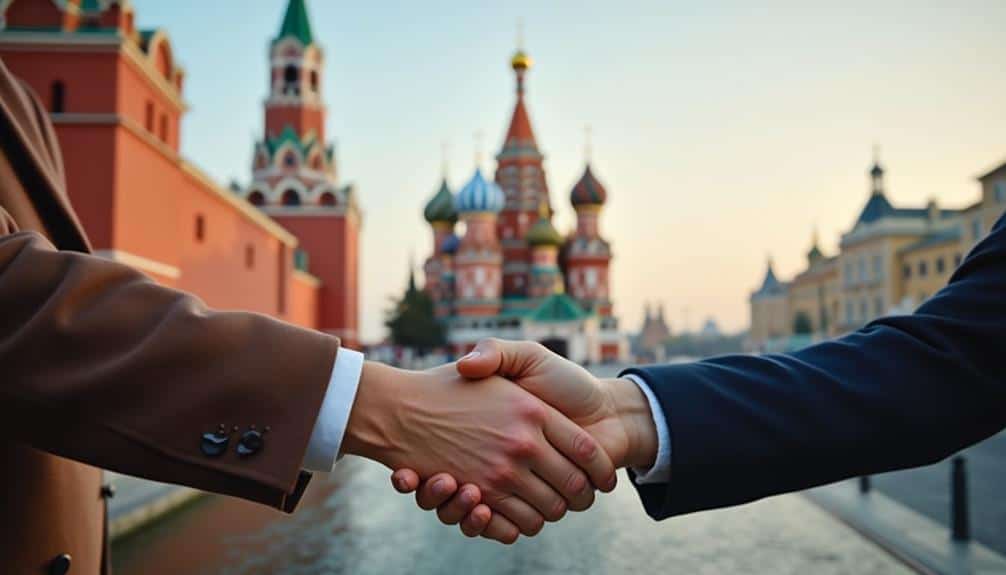
When visiting Russia, it is vital to understand the local customs regarding greetings and introductions. A well-executed greeting sets the tone for any interaction and showcases respect for Russian culture.
The handshake protocol is of particular significance. A firm handshake, direct eye contact, and a few words of greeting are customary between men. Women may also exchange handshakes, but it is more common for men to initiate this gesture when greeting women. It’s worth noting that a weak handshake may be perceived as a lack of confidence.
Address forms are another important aspect to reflect upon. Russians typically use both first names and patronymics when addressing someone in a formal setting.
The patronymic is derived from one’s father’s first name, combined with a suffix meaning “son of” or “daughter of.” For example, Ivan Petrovich would be the proper way to address a man named Ivan whose father’s name is Petr. This formality underscores respect and politeness.
Dining Etiquette
Dining etiquette in Russia is an essential aspect of social interaction and reflects the nation’s rich cultural heritage. When invited to a Russian home for a meal, it is customary to bring a small gift such as flowers or chocolates, demonstrating appreciation for the host’s hospitality.
Observing proper table manners is vital; wait for the host to indicate where to sit and begin eating only after they have started.
Russian meal traditions emphasize communal eating and sharing, with a variety of dishes often served simultaneously. It is polite to try each dish and express enjoyment. When toasting, maintain eye contact and acknowledge the significance of the moment, reflecting the deep-rooted cultural importance of toasts in Russian society.
Practicing good table manners includes keeping your hands visible but resting wrists on the edge of the table, not placing elbows on it. Napkins should be placed on your lap, and it is considered respectful to finish all the food on your plate, signifying appreciation for the meal.
Additionally, avoid discussing politics or controversial topics during dinner, focusing instead on light-hearted and positive conversation to foster a pleasant dining experience.
Dress Code
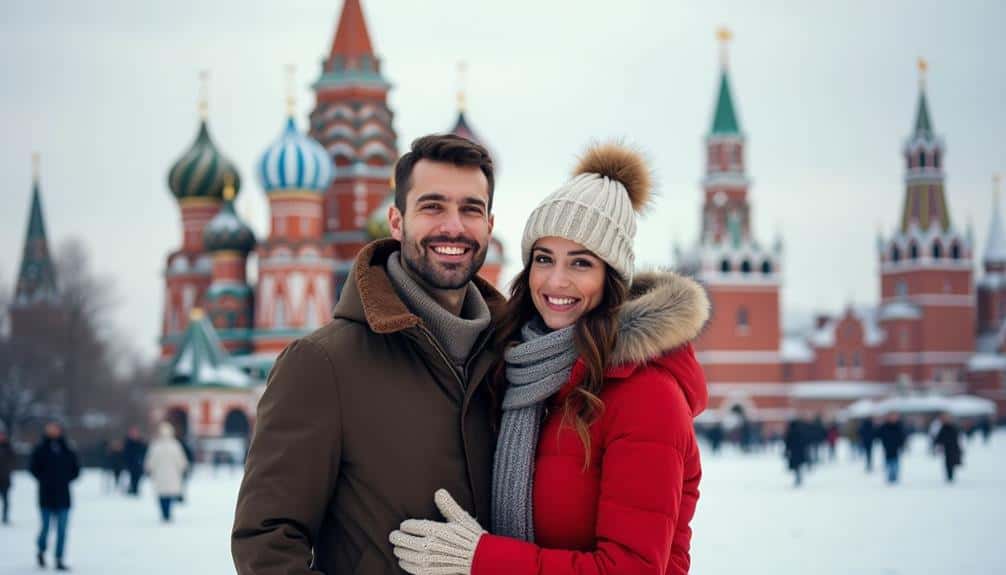
Understanding appropriate dress code is equally important as mastering dining etiquette when visiting Russia, as it reflects respect for local customs and traditions. When maneuvering through Russian society, especially in business settings, adhering to a certain standard of dress is vital.
Business attire in Russia is typically formal and conservative. Men are expected to wear dark-colored suits with ties, while women often wear dresses, skirts, or tailored pantsuits. The emphasis is on elegance and professionalism, as this illustrates both respect and seriousness.
Casual settings also have their own unwritten rules. While Russians appreciate the freedom to express individuality, they tend to favor neat and stylish clothing over overly casual or shabby attire. This cultural significance in clothing underscores the respect Russians place on appearances. For instance, visiting a theater, a high-end restaurant, or a religious site calls for more polished attire.
Additionally, the Russian climate can be extreme, so dressing appropriately for the weather is essential. Layering and selecting suitable outerwear reflect your awareness and adaptability.
Gift-Giving Customs
Gift-giving holds a significant place in Russian culture and is an essential aspect of social and business interactions. When visiting Russia, it is vital to understand the nuances of this tradition to make a positive impression.
Traditional gifts often include items that reflect thoughtfulness and respect, such as high-quality chocolates, fine wines, or unique souvenirs from your home country. Avoid giving overly extravagant gifts, as they may cause discomfort or be perceived as a bribe in a business context.
The art of gift presentation is equally important. It is customary to wrap gifts elegantly, using attractive paper and ribbons, as a well-presented gift demonstrates your appreciation for the recipient.
When presenting a gift, hand it over with both hands as a sign of respect. If you are invited to a Russian home, flowers are a suitable choice, but make sure the bouquet has an odd number of stems, as even numbers are reserved for funerals.
Understanding these gift-giving customs enables visitors to navigate Russian social and business landscapes with ease, fostering goodwill and mutual respect. Embracing these traditions not only enriches your experience but also strengthens the bonds you create during your visit.
Public Behavior
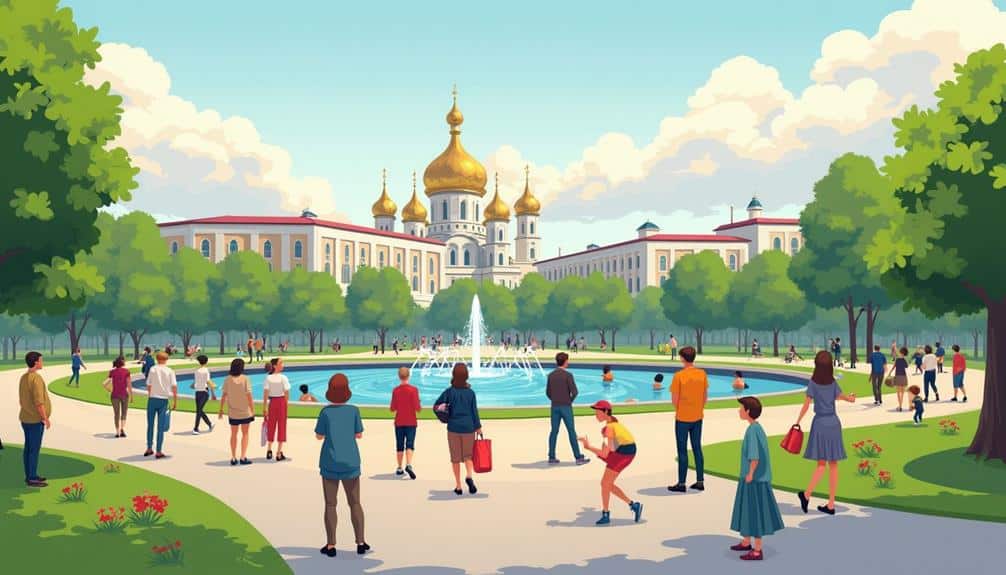
While understanding gift-giving customs can greatly enhance your interactions in Russia, being aware of public behavior norms is equally important for fostering positive relationships.
In Russia, how you conduct yourself in public spaces can notably impact how you are perceived by locals. One key aspect to take into account is the etiquette on public transportation. Russians value order and quietness in these spaces; loud conversations and disruptive behavior are generally frowned upon. Showing consideration to fellow passengers by maintaining decorum and giving up your seat for the elderly or pregnant women is highly appreciated.
Another vital element is respecting personal space. Unlike in some cultures where close physical proximity is common, Russians generally prefer to maintain a certain distance during interactions, especially with strangers. Avoid standing too close or engaging in unnecessary physical contact, as this can be seen as intrusive.
Additionally, when greeting someone, a firm handshake is standard, and maintaining eye contact is a sign of respect and sincerity.


